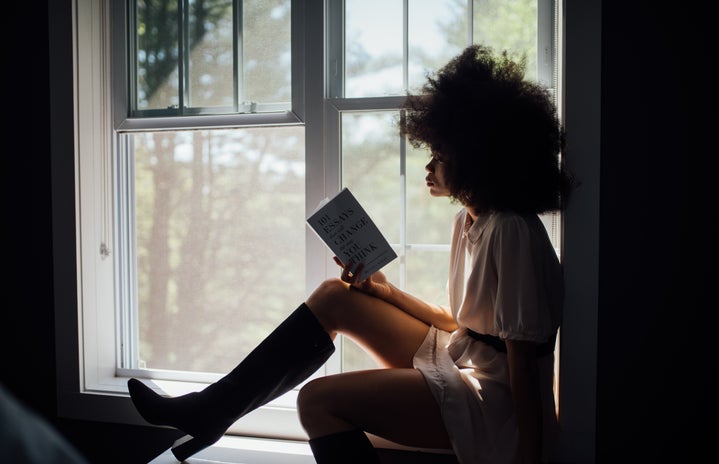The world is in the midst of going through a catastrophic, unconventional period. Some might compare the damage caused by the novel coronavirus to other known dark periods in history. This covid-19 epidemic is similar to past history textbooks, but we aren’t.
We are accustomed to coming and going whenever we please, going to work, to school, hanging out with friends at the movies or dates at arcades, festivals, and malls. We depend on these things to get us through the day.
I speak only for myself, but dealing with a mental disability with all these things around us makes life a bit more bearable. I learned how to bottle my anxiety up so it wouldn’t stand in the way of those things, and the worst episodes take place when the bottle is overflowing, which is something I’m still working on bettering. But that’s easier said than done.
Week one of quarantine was my denial stage. I knew the longer I was alone with my thoughts, the faster my anxiety would come back. I did everything to ignore it the best I could, watching t.v. series and movies often did the trick.
But I would dread going to sleep. I knew that laying in bed staring at the ceiling, multiple worst case hypotheticals speeding through my mind was awaiting me.
Because of those thoughts, I completely isolated myself from my family, staying in my room almost the whole day. I would come out for food only and my parents would start asking what was wrong, but I just said I was fine.
The last thing I needed was for them to worry about me.
I would lay in bed, stare out the window and just let go of the gates that held everything back. I reverted back to my old tactic of sitting idly and letting the wave of anxiety just take over, I felt it was easier than trying to fight it.
But then I came to a realization as week 2 began.
The only way I was going to stop this from becoming my life for the rest of quarantine was if I confronted it. If I stopped distracting myself from it. Stopped lying about it.
So I could actually do the things I liked because I enjoy them, not as a means to escape anxiety.
I was ashamed of it. But it was time for acceptance.
There’s no point in denying your reality. No matter how much you distract yourself, whatever you’re running away from will still be there at the end. Otherwise you’ll wake up one day realizing that your life has become one big distraction.
You’re not alone in your inner-battles, and I’m here to tell you that speaking to those you care about whether it be your family or close-friends—despite the cliche–actually helps. Spending time with those you care about, if possible, is important to overcoming. You can text or call those you trust and just share your worries.
What’s beneficial about this pandemic is that we are all experiencing it together. Bottling it up isn’t going to stop anything, which is why talking to people you care about assists in ridding the things that haunt you.
You don’t have to be strong all the time, it’s okay to show weakness. It’s the ability to be vulnerably weak that makes you strong.


